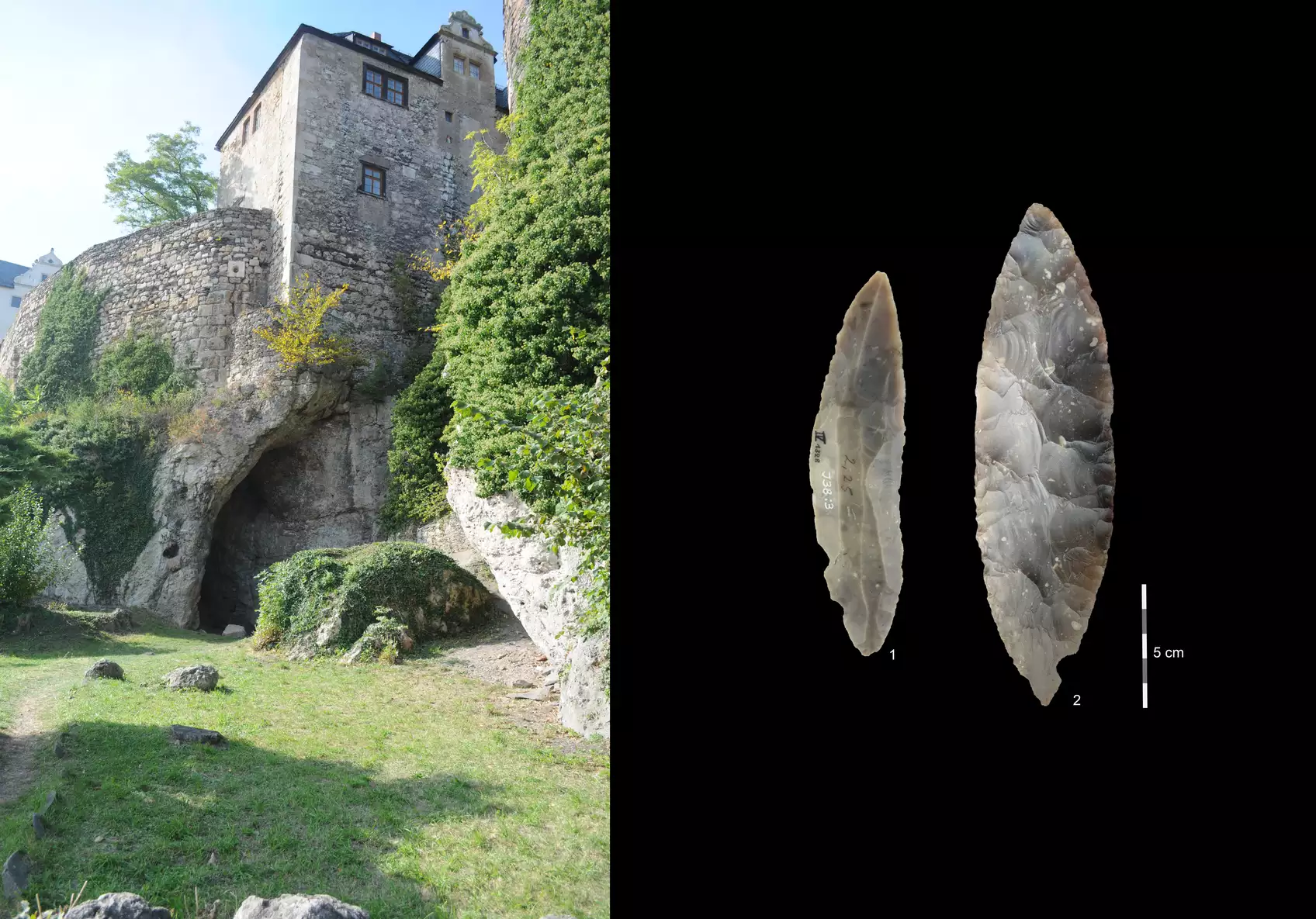Homo sapiens already reached northwest Europe more than 45,000 years ago
Max Planck Society (Max-Planck-Gesellschaft)An international research team reports the discovery of Homo sapiens fossils from the cave site Ilsenhöhle in Ranis, Germany. Directly dated to approximately 45,000 years ago, these fossils are associated with elongated stone points partly shaped on both sides (known as partial bifacial blade points), which are characteristic of the Lincombian-Ranisian-Jerzmanowician (LRJ).












